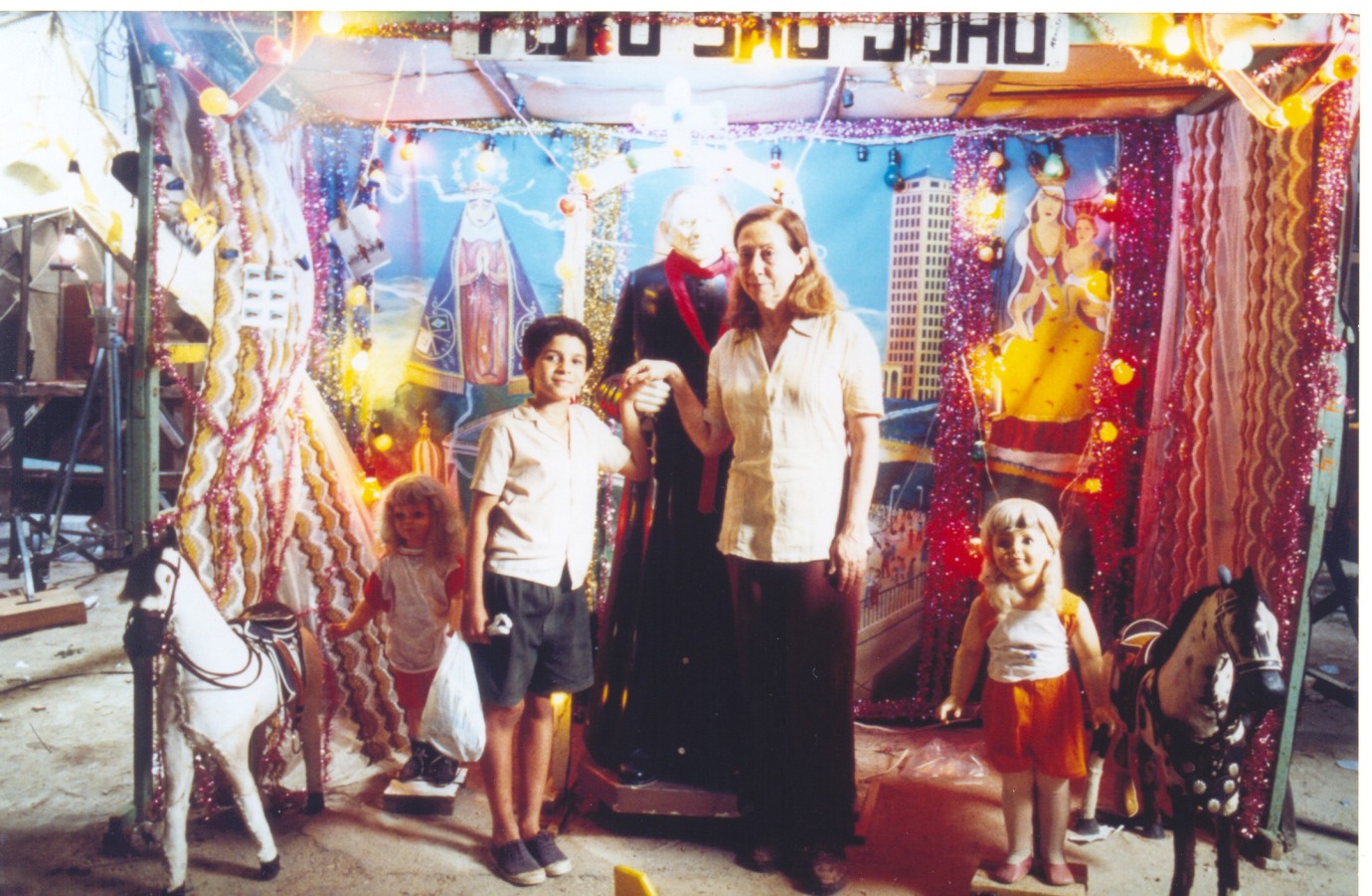Central do Brasil
Central Station
Source: VideoFilmes, Rio de Janeiro / Paula Prandini © Arthur Cohn

Vinícius de Oliveira, Fernanda Montenegro
Central do Brasil | Central Station by Walter Salles
BRA/FRA, Retrospective
Source: VideoFilmes, Rio de Janeiro / Paula Prandini © Arthur Cohn

Vinícius de Oliveira, Fernanda Montenegro
Central do Brasil | Central Station by Walter Salles
BRA/FRA, Retrospective
Source: VideoFilmes, Rio de Janeiro / Walter Carvalho | © Arthur Cohn
Dora, […] earns a living writing letters for the illiterate. Every morning, she sets up her stall in the concourse at Rio de Janeiro station and waits for customers to come her way. […]
Dora's daily life is governed by rigid routine. She only really knows three places: her tiny apartment where she lives alone, the station, and the crowded suburban train with which she travels to and from work. Her only girlfriend is Irene, a neighbour who, like Dora, lives alone. In the evening the two women read the letters that Dora has written and jointly decide which ones will be consigned to the wastepaper basket and which ones will […] be posted.
Suddenly Dora's life changes dramatically when a woman for whom she has just written a letter becomes the victim of a fatal accident that occurs right before Dora's eyes. The letter is addressed to the customer's husband, who has left her. She had wanted to persuade him to meet her again so that he could get to know his son...
Now, nine-year-old Josué is all alone. […] He wanders about aimlessly among the travellers and passers by, spending his days and nights in the station hall – until Dora decides to approach him.
[…] She knows what kind of money she can get if she could sell him to one of those dubious adoption agencies. But then, she thinks better of it, changes her mind and decides to help the boy find his father. The two of them set off on a journey into the unknown, by bus and by lorry, deep into the heart of the country – and ever closer together.
Translated from: Dokumentation der 48. Internationalen Filmfestspiele Berlin 1998
Dora's daily life is governed by rigid routine. She only really knows three places: her tiny apartment where she lives alone, the station, and the crowded suburban train with which she travels to and from work. Her only girlfriend is Irene, a neighbour who, like Dora, lives alone. In the evening the two women read the letters that Dora has written and jointly decide which ones will be consigned to the wastepaper basket and which ones will […] be posted.
Suddenly Dora's life changes dramatically when a woman for whom she has just written a letter becomes the victim of a fatal accident that occurs right before Dora's eyes. The letter is addressed to the customer's husband, who has left her. She had wanted to persuade him to meet her again so that he could get to know his son...
Now, nine-year-old Josué is all alone. […] He wanders about aimlessly among the travellers and passers by, spending his days and nights in the station hall – until Dora decides to approach him.
[…] She knows what kind of money she can get if she could sell him to one of those dubious adoption agencies. But then, she thinks better of it, changes her mind and decides to help the boy find his father. The two of them set off on a journey into the unknown, by bus and by lorry, deep into the heart of the country – and ever closer together.
Translated from: Dokumentation der 48. Internationalen Filmfestspiele Berlin 1998